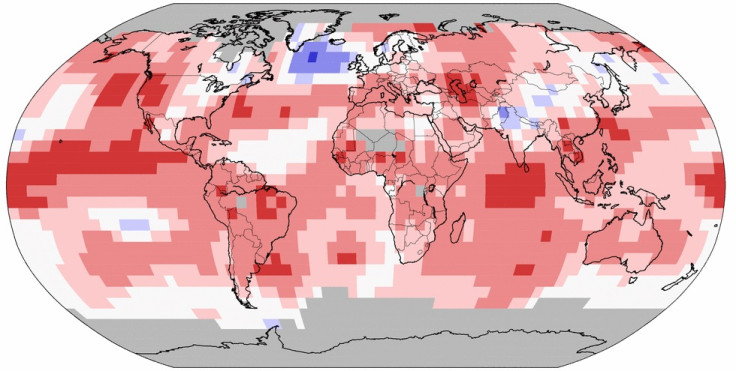Global warming: 2015 to be hottest year on record, scientists say

This year the Earth will experience the hottest average temperatures since records began, the National Oceanic and Atmospheric Administration (NOAA) said.
The first half of 2015 has already been recorded as the hottest ever, and the elevated temperatures will continue in the last six months of the year, according to Jessica Blunden, a climate scientist for NOAA.
"There is almost no way that 2015 isn't going to be the warmest on record," she said.
The average temperature in the first six months of 2015 was 14.35C, beating the old 2010 record by 1/6th of a degree.
The 2010 record average temperature was set during the last El Nino weather pattern – which is a warming of the central Pacific Ocean that changes weather worldwide.
While in 2010, the El Nino weakened and eventually petered out, this year, forecasters predict it will get stronger.
The news comes as the world's average temperature in June hit 16.33C, breaking the old record set last year by 0.12C, according to NOAA data.
Usually, temperature records are broken by one or two-hundredths of a degree, not nearly a quarter of a degree, Blunden said.
Temperatures were noticeably warmer in June in Spain, Austria, parts of Asia, Australia and South America, according to the Times newspaper.
Southern Pakistan experienced the eighth deadliest heat wave since 1900, with 1,200 people killed as a result.
In May, a heatwave in India claimed more than 2,000 lives and ranked as the fifth deadliest on record.
May, March and February 2015 also broke 136 year-year-old records for the hottest months.
Earth has broken monthly heat records 25 times since the year 2000 but hasn't broken a monthly cold record since 1916, according to the Times.
The scientist dubbed by some as the "godfather of global warming", James Hansen has warned that rising temperatures will lead to instability and rising sea levels.
"Social disruption and economic consequences of such large sea level rise could be devastating," he said in a recently released report on global warming. "It is not difficult to imagine that conflicts arising from forced migrations and economic collapse might make the planet ungovernable."
© Copyright IBTimes 2025. All rights reserved.





















